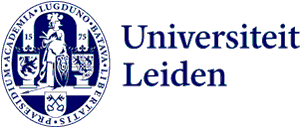
Leiden’s poo can help rid patients of resistant gut bacteria
Transferring poo from healthy donors to the intestines of chronically ill people has beneficial effects on these recipients’ gut bacteria, also in the longer term. This is the conclusion of research by the Leiden University Medical Center (LUMC) and the Netherlands Donor Feces Bank (NDFB).
Resistant gut bacteria are bacteria that do not respond to some antibiotics. This means that the antibiotics do not do what they are supposed to do. ‘Around one in six chronically ill patients suffer from this. The problem is often invisible and becomes a real silent killer when infections stop healing because antibiotics no longer help’, says Liz Terveer, a medical microbiologist at the LUMC and head of the NDFB.
Faecal transplantation suppresses or even eliminates the abundance of resistant bacteria that patients possess. This protection is expected to last for the longer term. In the study, patients were asked to provide stool samples for bacterial research up to three years after their faecal transplant. This showed that antibiotic resistance was still suppressed.
Biodiversity
The LUMC conducted three years of research into the possibility of faecal transplants for chronically ill people. ‘We did this for all patients who had registered at our donor bank for a faecal transplant’, says Terveer. ‘We cultured their poo and mapped their personal bacterial community. This gave us a full picture of each patient’s gut environment. This can be compared with a diseased ecosystem where you introduce new species to restore biodiversity. In our case, we administered donors’ filtered stools to patients through a tube.’
The patients had no or greatly reduced levels of resistant bacteria after three weeks. ‘A fantastic, speedy result’, says Terveer. ‘We have monitored some of the people for three years and now know that the effect is lasting too.’ The study was published in the journal Genome Medicine.
Immunotherapy for cancer
Terveer is continuing her research and is now looking at whether faecal transplantation would work for other types of patient. ‘We have started a study with the Netherlands Cancer Institute looking at whether the same treatment also works for patients with metastatic melanomas by enhancing the effect of their immunotherapy. The thinking is that faecal transplants produce such a strong immune response that the patient’s immune system becomes more effective at eliminating cancer cells.’
Donors wanted
The long-term research means the LUMC is always on the lookout for healthy donors. ‘Until now we’ve mainly been using poo from Leiden bowels because the route between toilet and lab cannot exceed two hours − unless you can poo on command, that is. Then we’d be all too glad to see you.’ If you are healthy, between the ages of 18 and 60 and live or work in the Randstad area, please sign up at www.ndfb.nl.
